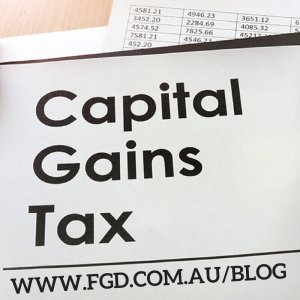
Many people own property which, if sold, will realise a capital gain which is taxable. In family law matters that is usually an investment property bought by the parties during their relationship or shares they own either personally or in a Self-Managed Super Fund.
Their property settlement may result in the transfer of that property to one of them or its sale. The question often arises as to whether future capital gains tax is counted as a debt if the property is not going to be sold but retained by one party. The answer is generally “no”. Just like theoretical selling costs, Capital Gains Tax which would be payable if the property was sold is not taken into account as a liability unless the property is to be sold.
On the other hand that does not prevent the Judge from taking it into account in a broad way as a future liability that the party receiving the property will have to incur one day (Rosati’s Case).
For some people the Capital Gains Tax that they will have to pay on the investment property when they ultimately sell it could mean that it is more appropriate to sell it now rather than solely carry that future contingent debt. It may be prudent to sell the shares in a Self-Managed Super Fund or transfer them in specie to a new fund or even to wind up the old fund, rather than paying out the departing member in cash, leaving the future Capital Gains Tax liability to the remaining member/s.
These are judgments that need to be made as part of the property settlement process.
Our lawyers can advise parties on this and a multitude of other issues in a property settlement – if you need advice please call our office on 02 6115 9000 or send us a message.

Denis Farrar is a Family Lawyer and Director at Farrar Gesini Dunn, Canberra Office.